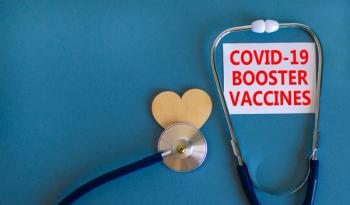
HHS Grants $45 Million to Long COVID Clinics to Transform Healthcare for Underserved Populations
There are nine grant awards of $1 million each for up to 5 years — totaling to overall $45 million in grants — that would mainly support underserved, rural, vulnerable, and minority populations that are disproportionately impacted by the effects of Long COVID
In efforts to address the many challenges of Long COVID, the HHS, in collaboration with the Agency for Healthcare Research and Quality (AHRQ), recently announced groundbreaking grant awards totaling $9 million.
These first-of-their-kind grants are aimed at supporting Long COVID clinics across the nation, with a focus on enhancing access to comprehensive, coordinated, and person-centered care.
There are nine grant awards of $1 million each for up to 5 years — totaling to overall $45 million in grants — that would mainly support underserved, rural, vulnerable, and minority populations that are disproportionately impacted by the effects of Long COVID, according to a release by the AHRQ.
Long COVID's symptoms can impact individual's quality of life for months.
For example, underserved minority populations, historically disadvantaged in terms of access to affordable, quality healthcare, have been disproportionately affected by Long COVID. In addition, limited awareness and acceptance of Long COVID among clinicians and in the healthcare community have led to delays in diagnosis and referrals for appropriate care.
The nine grants awarded by the HHS and AHRQ were designed to bridge critical gaps in care delivery by expanding access, creating innovation in care models, promoting best practices, and supporting Long COVID education for primary care providers.
According to the NIH, Long COVID has cost a cumulative $386 billion in lost wages, savings and medical expenses in the U.S. alone as of January 2023.
The Institute for Health Metrics and Evaluation's Global Burden of Disease has also reported that the condition has created a higher burden of disability than either heart disease or cancer, which cause about 52 and 50 DALYs for every 1,000 Americans, respectively. A DALY represents one year of healthy life lost to illness.
In the release, Secretary Xavier Becerra of HHS emphasized the administration's commitment to providing science-based best practices for Long COVID treatment, ensuring access to insurance coverage, and safeguarding the rights of returning workers coping with the uncertainties of their illness. This approach aims to address the challenges faced by Long COVID patients, including healthcare access, financial support, and workplace accommodations.
“Emerging research continues to transform the way we think about and treat Long COVID. To accelerate understanding and breakthroughs we’ll need to continue to work together,” said Adm. Rachel L. Levine, M.D., assistant secretary for Health at HHS, in the release. “Without diagnostic tests and treatments specific for Long COVID conditions, drawing on the collective experience of healthcare providers is critical in ensuring patients receive the care and support they need.”
The grants are proposed to serve as a roadmap for the development of improved care models, particularly for vulnerable populations disproportionately affected by Long COVID.
The AHRQ-funded Long COVID clinics will employ a multifaceted approach to enhance care for adult, pediatric, and priority populations. Key strategies include:
- Increasing Care Access: This involves expanding both in-person and virtual visit capacity, establishing new satellite clinics, and facilitating provider-based referrals through educational initiatives.
- Dedicated Care Coordination: Implementing dedicated care coordination services, social support, language interpretive staff, and group programs tailored to Long COVID patients.
- Behavioral Health Integration: Integrating dedicated behavioral health staff and introducing behavioral health and rehabilitation group support programs.
These strategies aim to create a comprehensive care ecosystem that addresses the physical, mental, and social aspects of Long COVID, according to the release.
Newsletter
Get the latest industry news, event updates, and more from Managed healthcare Executive.























